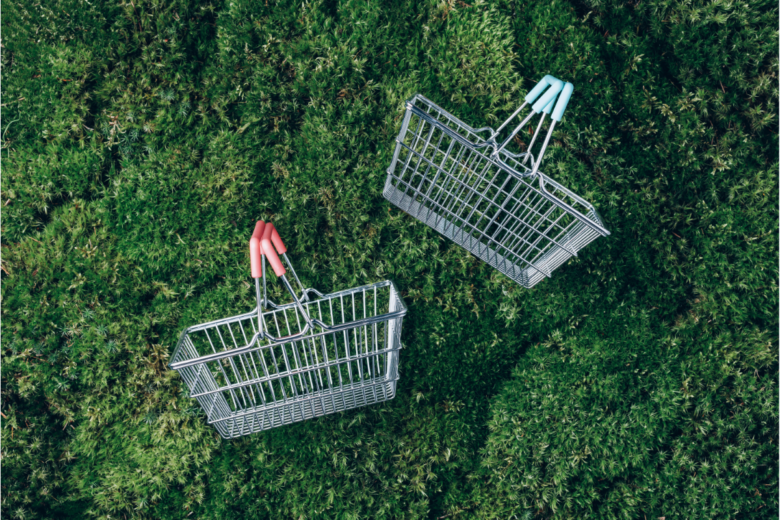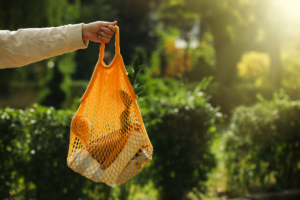Conscious consumption is a term that has been gaining more attention in recent years. It refers to the practice of making deliberate choices about what we buy and consume, taking into account the impact that our choices have on the environment, society, and our own well-being. The idea is to be more mindful about our consumption habits and to choose products and services that align with our values and beliefs.
In today’s world, where we are bombarded with advertisements and constantly encouraged to buy more, the concept of conscious consumption can seem overwhelming or even impossible. However, there are many small steps that individuals can take to practice conscious consumption in their everyday lives. From choosing products made from sustainable materials to supporting local businesses, there are many ways to make a positive impact through our consumption choices.
Understanding Conscious Consumption
Defining Conscious Consumption
Conscious consumption refers to the practice of being mindful of the impact of one’s purchases on the environment, society, and personal well-being. It involves making informed choices about what products to buy, where to buy them from, and how to use and dispose of them responsibly.
Conscious consumption is not just about buying eco-friendly or ethically-made products. It is also about considering the entire lifecycle of a product, from its production to its disposal, and choosing products that have a minimal negative impact on the environment and society.
The Importance of Mindful Buying
Mindful buying is a key aspect of conscious consumption. It involves taking the time to research and evaluate products before making a purchase. This includes looking at factors such as the product’s environmental impact, the company’s social responsibility practices, and the product’s quality and durability.
Mindful buying not only helps to reduce the negative impact of consumption on the environment and society, but it also promotes personal well-being by encouraging individuals to make purchases that align with their values and needs.
By practicing conscious consumption and mindful buying, individuals can make choices that count towards creating a more sustainable and equitable world.
Making Informed Choices
When it comes to practicing conscious consumption, making informed choices is key. By taking the time to evaluate product origins, assess environmental impact, and consider social responsibility, individuals can make choices that align with their values and have a positive impact on the world.
Evaluating Product Origins
One way to make informed choices is to evaluate the origins of a product. This includes considering where the raw materials were sourced, where the product was manufactured, and how it was transported. By choosing products that are made locally or from sustainable sources, individuals can reduce their carbon footprint and support ethical practices.
Assessing Environmental Impact
Another important factor to consider is the environmental impact of a product. This includes evaluating the product’s packaging, energy use, and waste disposal. By choosing products with minimal packaging, energy-efficient designs, and responsible waste management practices, individuals can help reduce their impact on the environment.
Considering Social Responsibility
In addition to environmental impact, it’s also important to consider the social responsibility of a product. This includes evaluating the working conditions of the people involved in its production, as well as the company’s overall commitment to ethical practices. By choosing products from companies with a strong track record of social responsibility, individuals can help support fair labor practices and ethical business practices.
Overall, making informed choices is an essential part of practicing conscious consumption. By evaluating product origins, assessing environmental impact, and considering social responsibility, individuals can make choices that align with their values and have a positive impact on the world.
Implementing Conscious Habits
Reducing Waste
Reducing waste is an essential step towards conscious consumption. Here are some practical ways to reduce waste:
- Use reusable bags, water bottles, and coffee cups.
- Say no to single-use plastics, such as straws and cutlery.
- Compost food scraps and yard waste.
- Buy products with minimal packaging or packaging made from recycled materials.
- Repair and repurpose items instead of throwing them away.
Supporting Sustainable Brands
Supporting sustainable brands is another way to practice conscious consumption. Here are some tips for finding sustainable brands:
- Look for certifications such as Fair Trade, GOTS, and B Corp.
- Research the brand’s environmental and social impact.
- Choose brands that use sustainable materials, such as organic cotton and recycled polyester.
- Support local businesses to reduce the carbon footprint of transportation.
- Consider the longevity and durability of the product before making a purchase.
By implementing these conscious habits, individuals can make a positive impact on the environment and society.
Challenges and Solutions
Overcoming Common Obstacles
Conscious consumption is not always easy, and it’s important to acknowledge the challenges that come with it. One of the most common obstacles is the perceived high cost of sustainable products. While it’s true that some eco-friendly products may be more expensive upfront, they often save money in the long run by being more durable and requiring less frequent replacement. Additionally, choosing to buy second-hand or repurposing items can be a cost-effective way to practice conscious consumption.
Another obstacle is the convenience factor. It can be tempting to choose fast and easy options, like grabbing a plastic water bottle instead of bringing a reusable one. However, with a little bit of planning and preparation, conscious consumption can become just as convenient. For example, keeping a reusable bag in your car or backpack can make it easier to avoid single-use plastic bags.
Leveraging Technology and Community
Technology and community can be powerful tools in practicing conscious consumption. There are a variety of apps and websites available that can help consumers make more informed and sustainable choices. For example, the app Good On You rates clothing brands based on their ethical and environmental practices. Similarly, the website Seafood Watch provides information on sustainable seafood choices.
In addition to technology, community support can be invaluable. Joining groups or organizations focused on sustainability can provide a sense of community and accountability. It can also provide opportunities to learn from others and share tips and tricks for conscious consumption.
Overall, conscious consumption may come with its challenges, but there are solutions available. By being mindful of these obstacles and utilizing resources like technology and community support, anyone can make impactful choices in their everyday lives.
Taking Action Beyond Consumption
While conscious consumption is an important step towards a more sustainable lifestyle, it is not the only action individuals can take to make a positive impact on the environment and society. Here are two ways to take action beyond consumption:
Advocacy and Education
One way to make a difference is to advocate for change and educate others about the importance of sustainability. This can be done by contacting elected officials, signing petitions, and spreading awareness through social media and other platforms. By speaking up and making their voices heard, individuals can influence policies and encourage others to adopt more sustainable practices.
Community Involvement
Getting involved in local communities and organizations is another way to make a difference. This can include volunteering for environmental groups, participating in community clean-up events, and supporting local businesses that prioritize sustainability. By working together with others, individuals can create a larger impact and make lasting changes in their communities.
By taking action beyond consumption, individuals can contribute to a more sustainable and equitable future for all.




